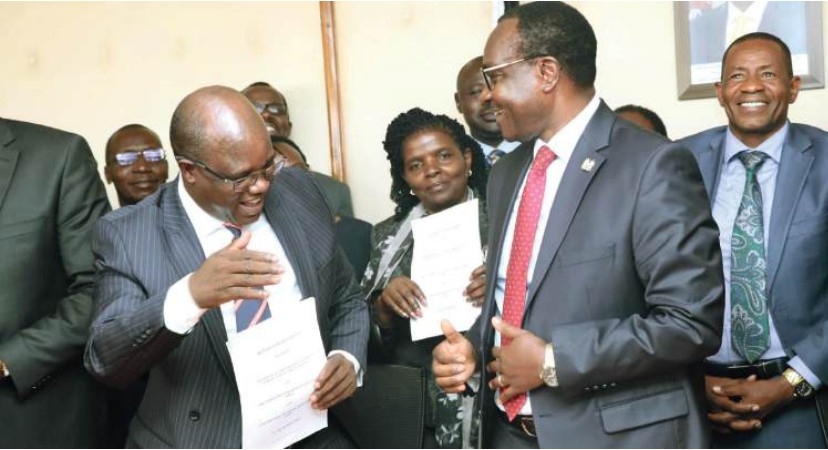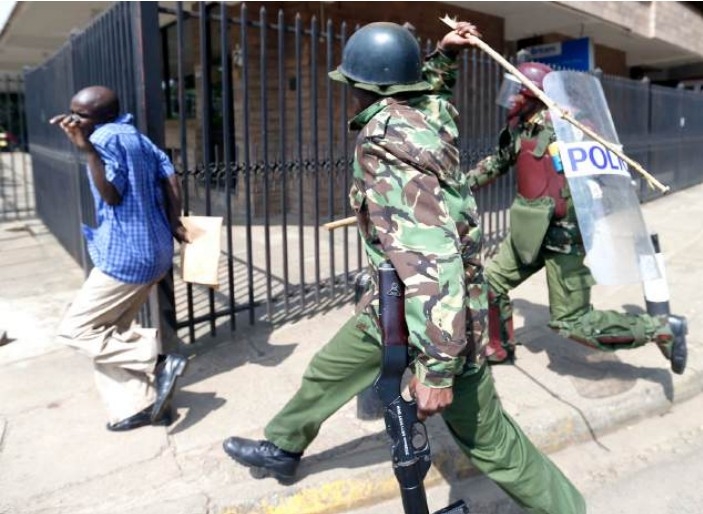Kemri has advised the Health ministry to send more Covid-19 vaccines to rural areas, where blood tests show a large number of villagers remain vulnerable to infection.
In comparison, most city dwellers already have the protective antibodies from past infection or vaccination, the Kilifi-based Kemri-Wellcome Trust said.
The ministry is currently running a 10-day campaign to increase vaccine uptake in Nairobi, Mombasa and Kisumu cities.
But the Wellcome Trust evidence shows such urban campaigns may be unnecessary and should now be focused on villages.
“Interventions to improve Covid-19 vaccination uptake should be targeted to individuals in rural Kenya who are at high risk of severe Covid-19,” the Kemri-Wellcome Trust researchers said in a policy advisory.
The advice follows antibody tests on blood collected from 850 volunteers in Nairobi and a similar number from Kilifi.
In a report that’s yet to be published, Kemri-Welcome Trust says 63 per cent of the Kilifi villagers and 86 per cent of the Nairobi volunteers had Covid-19 antibodies from a past infection or vaccination.
These antibodies provide up to 80 per cent of the protection against wildtype SARS-CoV-2 derived from vaccination with up to two doses of vaccines.
“These findings suggest a population immunity gap in Kilifi, though this is probably indicative of rural Kenya in general,” researchers said in the report titled 'SARS-CoV-2 seroprevalence and implications for population immunity: Evidence from two Health and Demographic Surveillance System Sites in Kenya, February-June 2022'..
It is available on the pre-print platform Medrxiv.
Health CASs Mercy Mwangangi and Rashid Aman, and acting director general for Health Patrick Amoth are listed as co-authors.
When the data is adjusted to reflect the entire population, it would mean 66.7 per cent of Kilifi villagers and 85.3 per cent of Nairobi residents already have Covid-19 antibodies.
The samples were taken between March and June this year.
“Given a potential population immunity gap in rural Kenya, there is a need to implement interventions to improve uptake of Covid-19 vaccination among rural dwellers at high risk of severe disease, such as the elderly and immunocompromised,” the researchers said.
Antibody tests remain the most important means to measure Covid-19 infections and have in many cases outstripped case detection through rapid tests.
On Monday, the ministry of Health warned the low uptake of Covid-19 vaccines being witnessed in the country is likely to see more doses expire or go to waste in the coming days.
Data from the Ministry of Health show that so far, 843,718 doses have expired since the exercise began in March last year.
According to the Vaccines Deployment Taskforce chair Dr Willis Akhwale, Kenya’s vaccine wastage rate by the end of March 2022 was estimated to be at 15 per cent; translating to nearly 2.7 million doses.
“As of October 13, 300,297 doses had been reported as wastages from counties in the system and we continue to urge them to report the remaining ones so that we update the auditors,” he said.
General uptake data shows 22.2 million vaccines have been administered across the country; 18.1 million to the population aged 18 years and above and another 2.6 million to those aged between 12 years and 18 years.
The proportion of adults fully vaccinated now stands at 35.8 per cent.
(Edited by V. Graham)
















